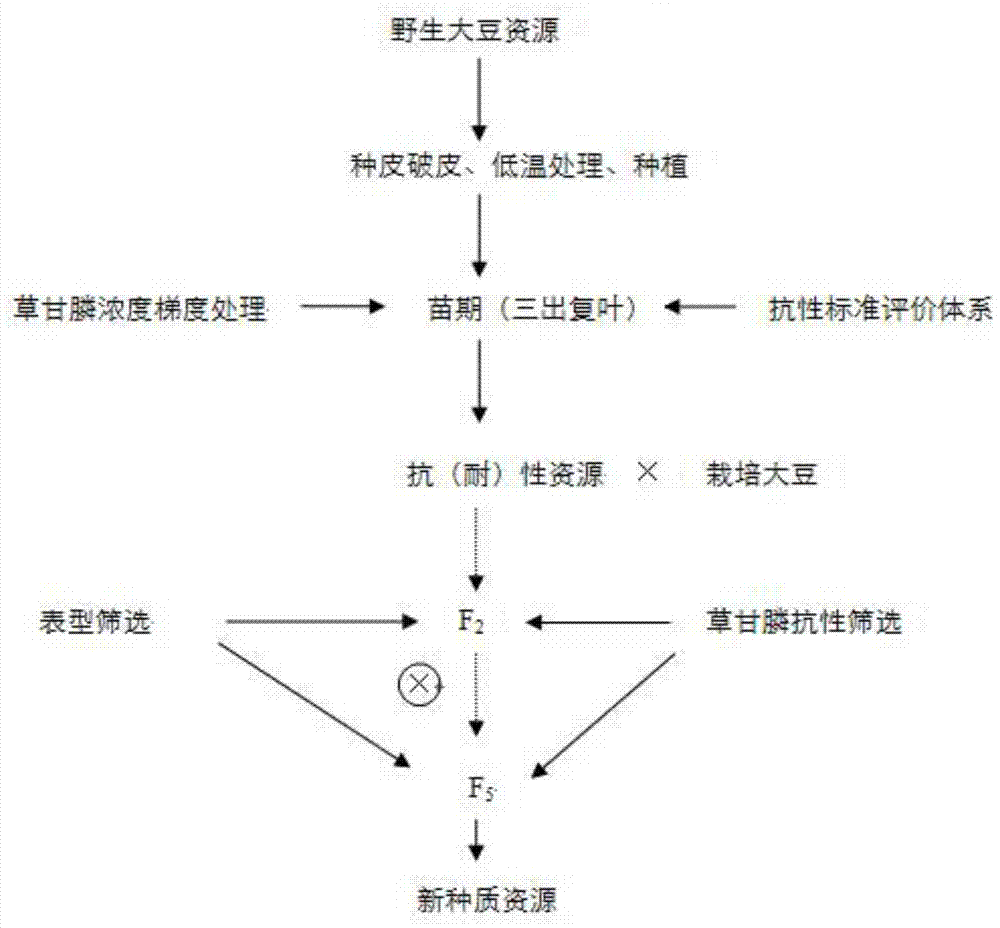A method for breeding new germplasm with resistance/resistance to glyphosate using wild soybean
A wild soybean and glyphosate-resistant technology, applied in the field of wild plant resource utilization research, can solve the problems of phytotoxicity, low growth tolerance, and increasing frequency of glyphosate-resistant weeds, and achieves simple methods, enhanced reliability, and improved reliability. The effect of improving the success rate
- Summary
- Abstract
- Description
- Claims
- Application Information
AI Technical Summary
Problems solved by technology
Method used
Image
Examples
Embodiment 1
[0031] A method for breeding new glyphosate-resistant / tolerant germplasms using wild soybeans, wherein the method for breeding new glyphosate-resistant / tolerant germplasms uses different concentration gradients of glyphosate to treat wild soybeans at the seedling stage to screen out pairs of glyphosate-resistant Glyphosate-resistant / tolerant wild soybeans, and then use the screened wild soybeans with resistance / tolerance to carry out interspecific hybridization with cultivated soybeans to obtain interspecific hybrid offspring, and perform grazing on the inbred lines of the interspecific hybrid offspring. Glyphosate resistance / tolerance screening combined with phenotypic screening to breed new germplasm resistant / tolerant to glyphosate (such as figure 1 shown).
[0032] The method for the described breeding resistance / glyphosate-tolerant new germplasm comprises the steps:
[0033] (1) Treatment of wild soybeans to be identified before sowing (such as figure 2 Shown): Because...
PUM
 Login to View More
Login to View More Abstract
Description
Claims
Application Information
 Login to View More
Login to View More - R&D Engineer
- R&D Manager
- IP Professional
- Industry Leading Data Capabilities
- Powerful AI technology
- Patent DNA Extraction
Browse by: Latest US Patents, China's latest patents, Technical Efficacy Thesaurus, Application Domain, Technology Topic, Popular Technical Reports.
© 2024 PatSnap. All rights reserved.Legal|Privacy policy|Modern Slavery Act Transparency Statement|Sitemap|About US| Contact US: help@patsnap.com










